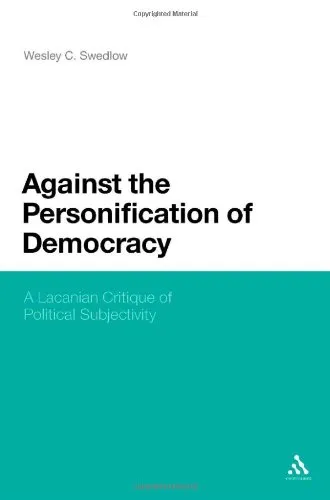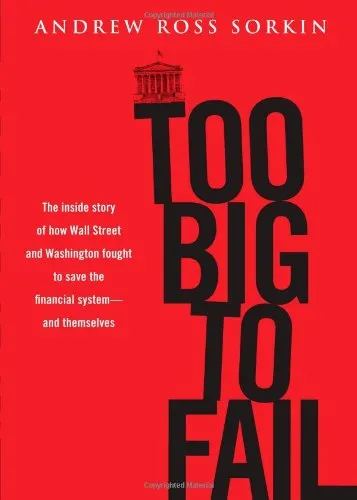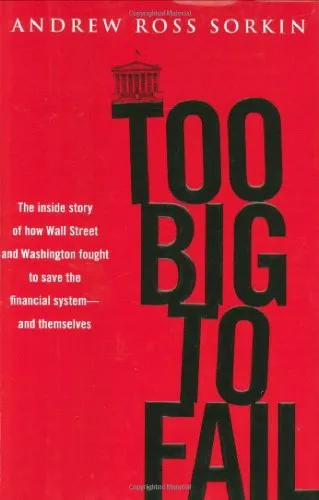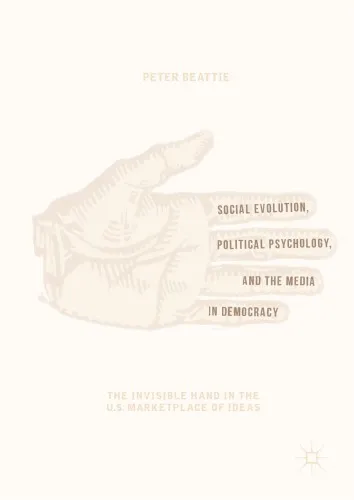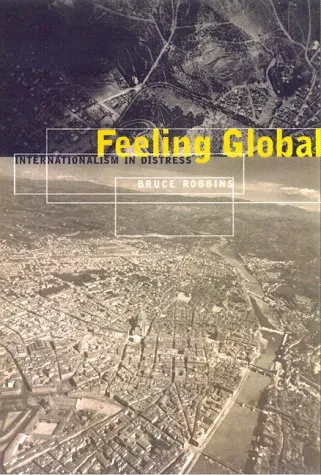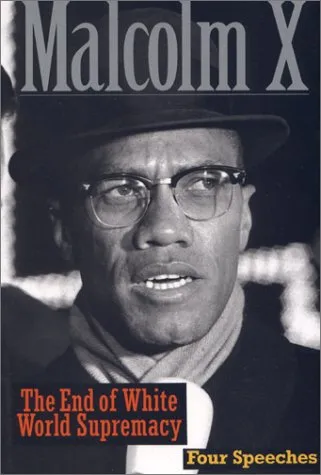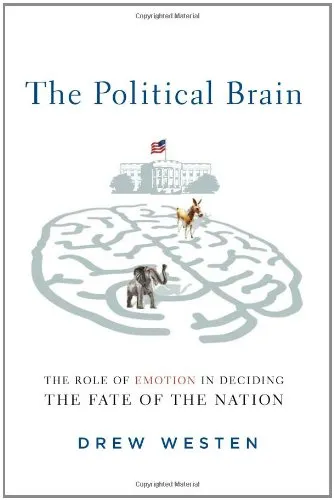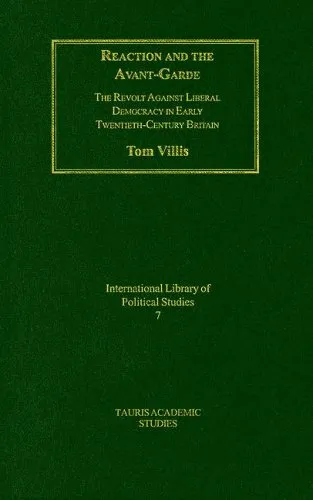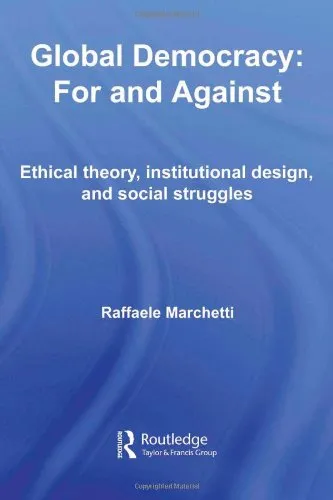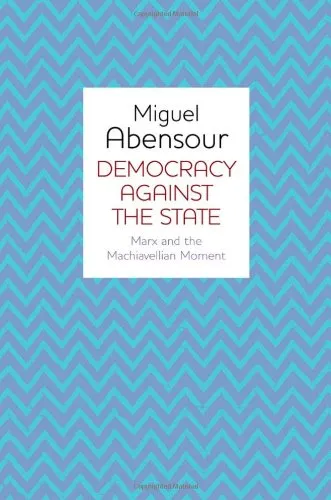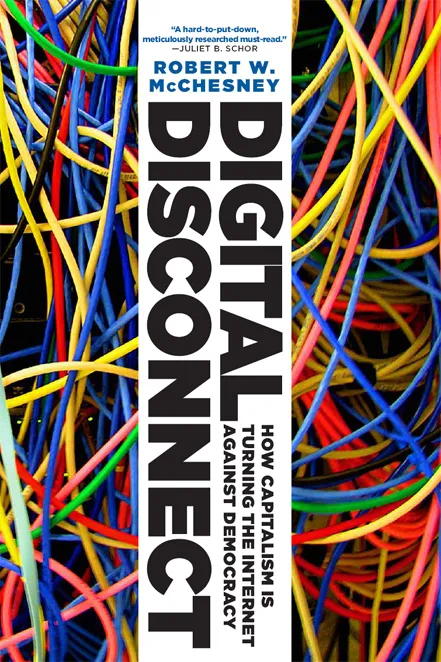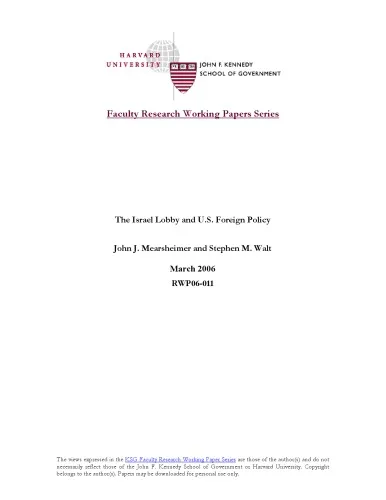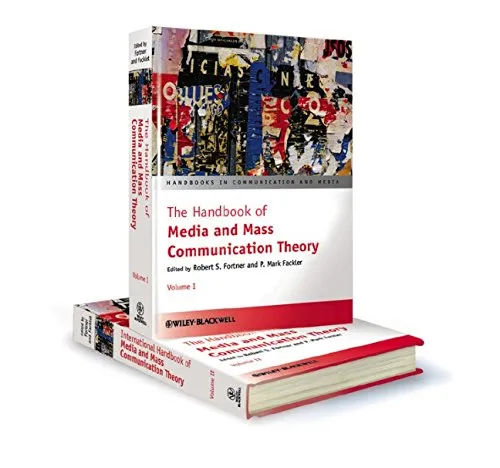Against the Personification of Democracy: A Lacanian Critique of Political Subjectivity
3.5
بر اساس نظر کاربران

شما میتونید سوالاتتون در باره کتاب رو از هوش مصنوعیش بعد از ورود بپرسید
هر دانلود یا پرسش از هوش مصنوعی 2 امتیاز لازم دارد، برای بدست آوردن امتیاز رایگان، به صفحه ی راهنمای امتیازات سر بزنید و یک سری کار ارزشمند انجام بدینکتاب های مرتبط:
معرفی کتاب: Against the Personification of Democracy: A Lacanian Critique of Political Subjectivity
کتاب Against the Personification of Democracy، نوشتهی وسلی سی. سوئدلو (Wesley C. Swedlow)، اثری تحلیلی و انتقادی درباره مفاهیم دموکراسی، سوژگی سیاسی و نظریه انتقادی است. این کتاب به کمک خوانش روانکاوانه لاکانی (Lacanian) به بررسی چگونگی تصور و بازنمایی دموکراسی پرداخته و تلاش میکند تا مفهوم سوژگی سیاسی را از نو تعریف کند.
خلاصهای از کتاب
این کتاب به صورت انتقادی به ایدهی شخصیتبخشی به دموکراسی در نظریههای مدرن سیاسی میپردازد. نویسنده در این اثر استدلال میکند که دموکراسی غالباً به اشتباه به مثابه یک موجود مستقل و دارای ذات مجزا بازنمایی شده و این نوع بازنمایی موجب پیچیدگیهای نظری درک سیاست و سوژگی دموکراتیک میشود. وسلی سی. سوئدلو در این کتاب از روشها و ابزارهای روانکاوی لاکان برای تحلیل سازوکارهای ایجاد سوژگی سیاسی استفاده کرده و نشان میدهد که چگونه ایدئولوژیهای مدرن تلاش میکنند هویت دموکراتیک را همچون سوژهای واحد و ثابت "شخصیتبخشی" کنند.
نویسنده به خصوص در این کتاب بر این باور است که باید سوژگی سیاسی را نه همچون یک هویت ثابت، بلکه در قالب یک زمانمندی پویا و پراکنده بازاندیشی کرد. بر مبنای چنین تحلیلی، دموکراسی دیگر یک ساختار ایستا نیست، بلکه یک فرآیند پویای تعریف مجدد است که همواره در برابر مفروضات و ایدئولوژیهای تثبیتشده مقاومت میکند.
نکات کلیدی کتاب
- بررسی مفهوم شخصیتبخشی به دموکراسی و نقد ایدئولوژیکی آن.
- تحلیل روانکاوانه و استفاده از مفاهیم لاکانی مانند سوژهی منقسم (Divided Subject) برای درک سیاست مدرن.
- فرمولبندی مجدد دموکراسی به عنوان یک فضای باز و شکافدار برای انتقادات و تغییرات اجتماعی.
- چالشی علیه مفاهیم تثبیتشده در فلسفه سیاسی، از جمله بازبینی نسبت میان ایدئولوژی و سوژگی سیاسی در دوران معاصر.
نقلقولهای مشهور از کتاب
"Democracy is not a sovereign subject or an ideal totality; it exists only as a space of disjunction, constantly under construction and deconstruction."
"The Lacanian critique of subjectivity tears apart the false unity of the democratic subject and opens the way for thinking of democracy as both process and absence."
"Political subjectivity emerges not as an affirmation of identity but as a negation of the very structures that seek to define it."
چرا این کتاب مهم است؟
Against the Personification of Democracy یکی از کتابهایی است که تفکر رایج درباره دموکراسی و سوژگی سیاسی را به چالش میکشد. این اثر برای افرادی که به دنبال درک عمیقتر از نظریه لاکان و کاربرد آن در فلسفه سیاسی هستند، اثری حیاتی و بنیادین است. سوئدلو نشان میدهد که چگونه نظریه روانکاوی میتواند به خوانش انتقادی مفاهیم اصلی در علوم سیاسی کمک کند و از این رو، پلی میان مطالعات روانشناسی، فلسفه و علوم اجتماعی برقرار میکند. این کتاب همچنین خوانندگان را به بازاندیشی درباره نقش فرد در سیاست و محدودیتهای گفتمانهای سنتی وادار میکند.
اگر به نظریه سیاسی انتقادی، فلسفه لاکان و بازخوانی رادیکال مفاهیمی مانند دموکراسی علاقهمند هستید، این کتاب میتواند نقطه شروعی ارزشمند برای مطالعات عمیقتر باشد.
Introduction to Against the Personification of Democracy: A Lacanian Critique of Political Subjectivity
Against the Personification of Democracy challenges the conventional understanding of democracy by offering a critical exploration of political subjectivity through the lens of psychoanalysis. Drawing on the ideas of Jacques Lacan, one of the most influential psychoanalysts of the 20th century, this book delves deeply into how our collective identity is intertwined with the fantasies and desires that shape democratic ideals. It critiques the "personification" of democracy, focusing on how such representations obscure the deeper, often unsettling mechanisms that govern political participation and subjective identification. This book is not merely an academic exercise; it invites readers to rethink their assumptions about democracy, subjectivity, and the unconscious forces that define political life.
At its core, the book asks an urgent set of questions: What happens when democracy is imagined as a person, a unified entity? How does this shape political behavior and decision-making? And more importantly, how does this imagined personification obscure the contradictions, disavowals, and gaps that underlie the democratic process? In answering these questions, the author employs Lacanian psychoanalytic theory as a guiding framework to critique prevailing notions of the sovereign political subject, ultimately offering a thought-provoking reimagining of democratic engagement.
Whether you are a scholar of political theory, psychoanalysis, or merely curious about the deeper psychological structures of political life, this book promises an intellectually rigorous and fundamentally transformative journey.
Detailed Summary of the Book
Against the Personification of Democracy is divided into several thematic sections, each of which explores different aspects of democracy and political subjectivity through a Lacanian lens. The book begins by examining the history of how democracy has been personified in both philosophical and cultural discourses. By assigning a human-like status to democracy—treating it as a coherent, unified figure—societies often reinforce the illusion of harmony and universality, suppressing the inherent divisions and antagonisms that exist within the political sphere.
The text then moves to analyze the role of the "Big Other," a key Lacanian concept, in constructing democratic ideals. Democracy, it argues, is not an actual entity but a symbolic construct shaped by our unconscious fantasies. This chapter uncovers how these fantasies—rooted in desire and fear—animate political participation, fostering both community and alienation.
Another significant theme is the critique of liberal democracy's emphasis on individuality and sovereignty. By centering the "autonomous" individual, liberal political thought overlooks the fragmented and contradictory nature of the subject as revealed by psychoanalysis. The book offers a compelling argument that political decision-making and identity are never entirely rational processes but are instead deeply entwined with unconscious desires, ideological distortions, and the perverse enjoyment of social bonds.
The closing chapters call for a rethinking of political subjectivity, one that resists the comforting myths of unity and coherence offered by democratic personification. Rather than embracing an illusory ideal of democracy as a unified subject, the book advocates for an embrace of its antagonisms, gaps, and paradoxes—precisely those aspects that make democratic life vibrant and open to change.
Key Takeaways
- Democracy is not a unified or coherent "person" but a symbolic construct shaped by unconscious desires and ideological fantasies.
- Political subjectivity is deeply fragmented, shaped as much by unconscious drives as by rational deliberation.
- The personification of democracy conceals the inherent contradictions and antagonisms of the political sphere.
- Rethinking democracy through a Lacanian lens requires an embrace of its paradoxes rather than a reliance on comforting illusions of unity and coherence.
Famous Quotes from the Book
"The personification of democracy is not its strength but its fundamental weakness: a desperate attempt to deny the fractures within the political body."
"To understand democracy, one must go beyond the facade of representation and confront the unconscious desires that sustain it."
"Democracy thrives not in unity, but in its gaps, its contradictions, its refusal to ever be fully complete."
Why This Book Matters
In an era of increasing political polarization and disillusionment with democratic processes, Against the Personification of Democracy offers a timely intervention into contemporary political thought. By bringing psychoanalysis into dialogue with political theory, the book sheds light on the unconscious forces that shape collective identities and decision-making. It challenges readers to confront the myths and illusions that underpin their political beliefs, offering a path toward a more honest, critical engagement with democracy.
This book matters because it dares to question the very foundations of how we think about democratic life. It provides scholars, activists, and citizens alike with the intellectual tools to navigate the complexities of political subjectivity, encouraging a more nuanced and open-ended approach to democracy that acknowledges its contradictions and allows for transformation.
دانلود رایگان مستقیم
شما میتونید سوالاتتون در باره کتاب رو از هوش مصنوعیش بعد از ورود بپرسید
دسترسی به کتابها از طریق پلتفرمهای قانونی و کتابخانههای عمومی نه تنها از حقوق نویسندگان و ناشران حمایت میکند، بلکه به پایداری فرهنگ کتابخوانی نیز کمک میرساند. پیش از دانلود، لحظهای به بررسی این گزینهها فکر کنید.
این کتاب رو در پلتفرم های دیگه ببینید
WorldCat به شما کمک میکنه تا کتاب ها رو در کتابخانه های سراسر دنیا پیدا کنید
امتیازها، نظرات تخصصی و صحبت ها درباره کتاب را در Goodreads ببینید
کتابهای کمیاب یا دست دوم را در AbeBooks پیدا کنید و بخرید
1408
بازدید3.5
امتیاز0
نظر98%
رضایتنظرات:
3.5
بر اساس 0 نظر کاربران
Questions & Answers
Ask questions about this book or help others by answering
No questions yet. Be the first to ask!
